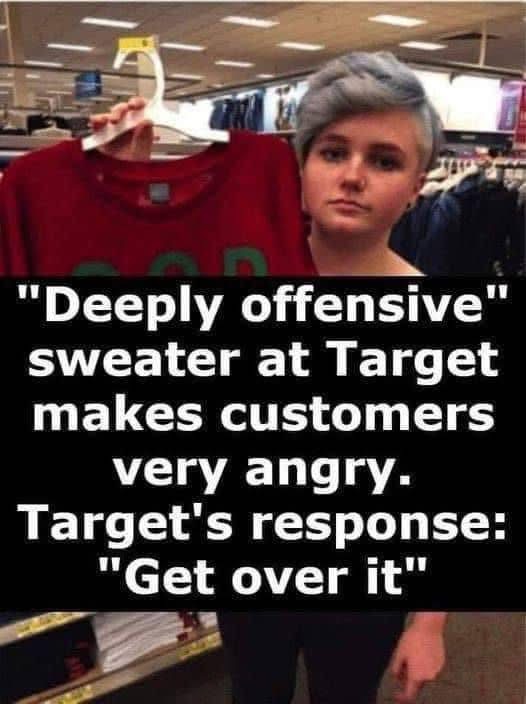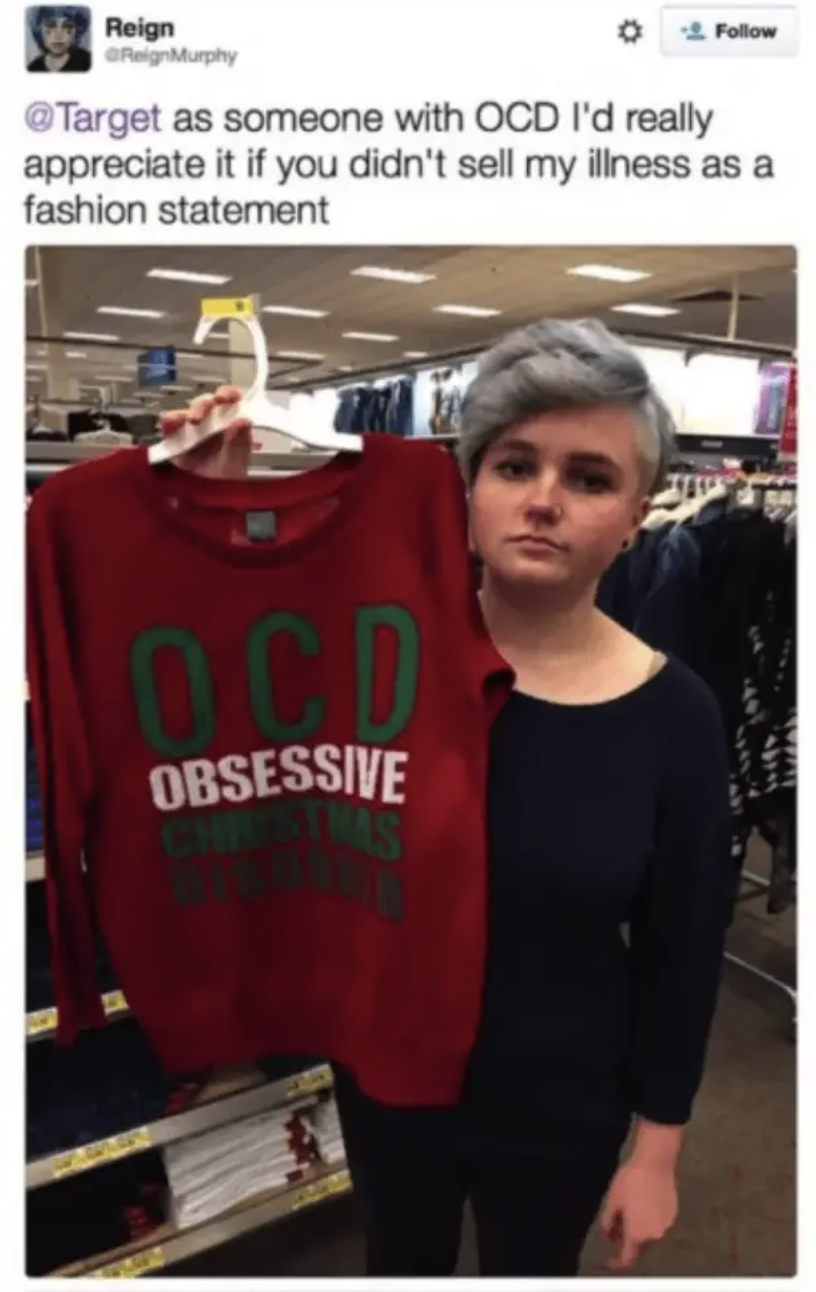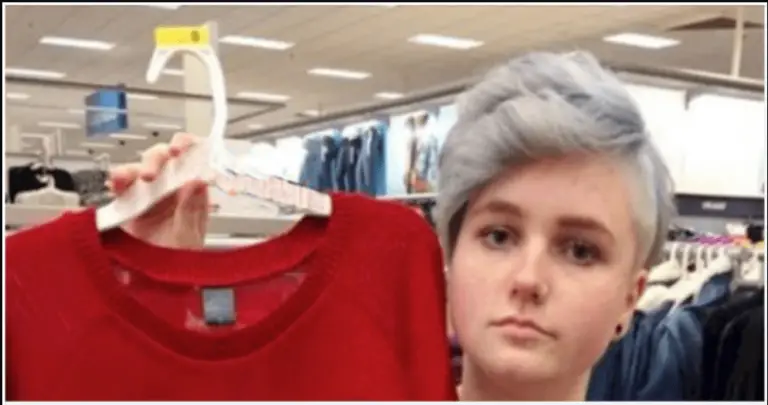In today’s world, it’s not uncommon for everyday items to stir up strong feelings. What might seem harmless to one person can be deeply offensive to another. Such is the nature of our diverse and interconnected society. Sometimes these controversies shine a needed light on issues, while other times, they may seem like much ado about nothing.

Let’s explore a recent incident involving Target, a popular retail chain, to see how a seemingly simple sweater became the center of a passionate debate. It all began with a young woman named Reign Murphy, a frequent shopper at Target. Her usual trip to the store took an unexpected turn when she stumbled upon a red sweater with a bold message. The sweater read: “OCD Obsessive Christmas Disorder.” For Reign, who suffers from the real psychological disorder OCD, this was far from a light-hearted joke.
Obsessive-Compulsive Disorder, commonly referred to as OCD, affects millions of Americans. It’s a mental health condition characterized by intrusive thoughts and repetitive behaviors. For those living with OCD, the disorder is no laughing matter, as it can significantly impact their daily lives. Discovering the sweater, Reign felt it trivialized something very serious, turning her shopping experience into a moment of personal offense.
Feeling compelled to speak out, Reign took a photo of the sweater and shared it on social media, namely Twitter. The message caught on quickly, with many users agreeing with her perspective. They too felt that the sweater’s message was insensitive and minimized the challenges faced by those with OCD. Yet, not everyone felt the same. Some individuals, even those dealing with OCD, didn’t see the humor as offensive. They viewed it as a playful nod to holiday enthusiasm rather than a jab at mental health.
The discussion online amplified to such an extent that Target had to respond. Jessica Carlson, a spokesperson for the retail giant, expressed the company’s regret if anyone was hurt or offended by the sweater. Despite this acknowledgment, Target decided to keep the product on their racks, reflecting the complex balance retailers must strike between humor and sensitivity.
This wasn’t Target’s first brush with controversy. In the past, other customers voiced concerns over various designs, including shirts with words like “bride,” “trophy,” and “Mrs.” These expressions, according to some, perpetuated harmful stereotypes, reducing women to these monikers.

In the age of social media, where a single post can reach thousands in minutes, brands often find themselves needing to balance customer satisfaction with broad public opinion. This case underscores the ongoing conversation about where the lines in humor and marketing should be drawn.
Now, we turn to you. What are your thoughts on such matters? Is the sweater in question just a light-hearted piece for the festive season, or does it cross a line? Your views can add to this essential dialogue around awareness and inclusivity. Feel free to discuss this with your family and friends, as these conversations can lead to greater understanding.
The story’s impact proves the power of a single voice in a crowd. While each opinion and perspective brings a unique value, together, they shape a more thoughtful community. As we navigate these discussions, empathy and respect remain key, allowing room for everyone’s experiences to be acknowledged.
Thank you for taking the time to explore this topic with us. We hope this narrative encourages you to reflect and share your thoughts, fostering a discussion that respects all perspectives and promotes understanding.




